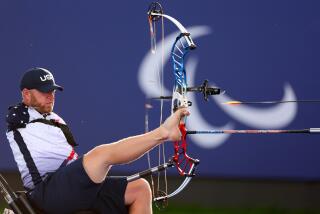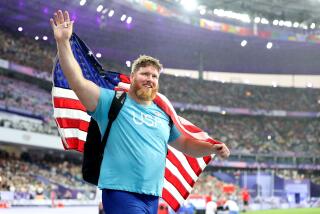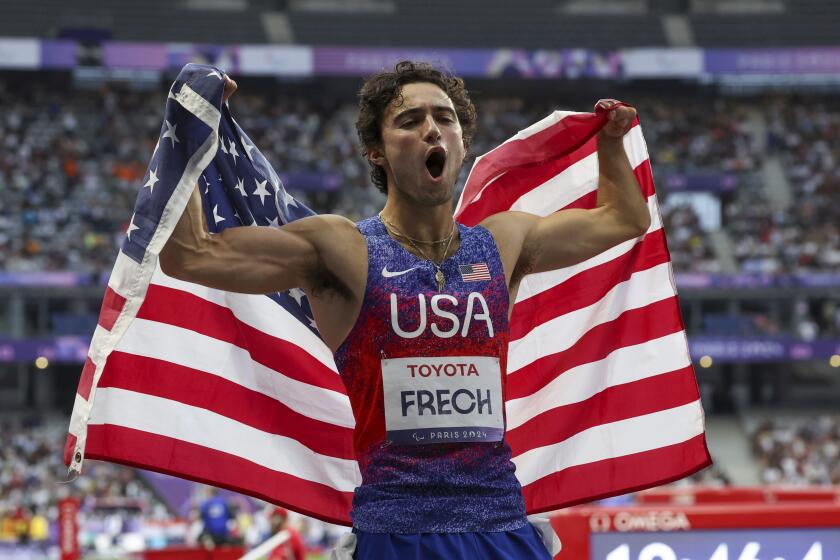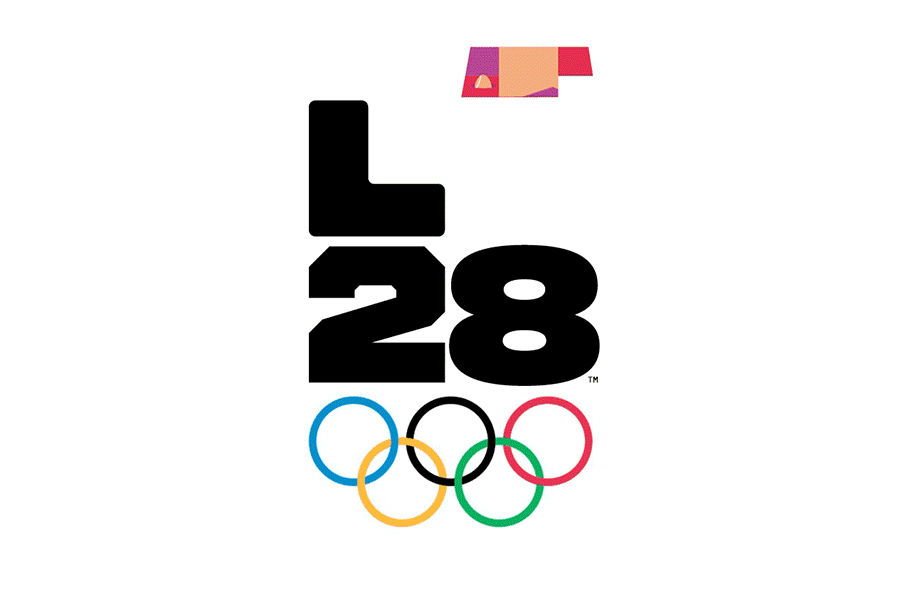U.S. archer Brady Ellison in the hunt for Olympic medal
DALLAS -- Rarely do the Olympics, javelinas and chewing tobacco wind up in the same story.
But then, rarely do the Olympics encounter someone like Brady Ellison.
The young man tugs a faded cap down over curls of blond hair and explains that, if it weren’t for a steady hand and a sharp eye, he might still be hunting hogs on the ranch.
“I’m a country boy at heart,” he says.
For now, his singular talents have led him in a different direction: Ellison heads into summer as the world’s top-ranked archer and a good bet to win gold at the 2012 London Olympics.
“His style is so natural and focused,” U.S. national Coach Kisik Lee says. “No other archer in the world can win as consistently as he does.”
Ellison, 23, brings something else to a sport that rarely draws attention in America: He is a bit, well, eccentric.
“You know,” he says with a grin, “a lot of people tell me that.”
Start with a childhood spent around his grandfather’s cattle ranch in Arizona, where Ellison tracked grasshoppers with plastic arrows while still in diapers.
Animal lovers might cringe, but the boy was raised to hunt, learning to take down bears, deer, moose and javelinas — which look like wild pigs — with his bow. How many people can say they have stood their ground against a charging elk?
“It comes crashing through the brush at you,” he says. “I mean, it’s an adrenaline rush.”
Though target shooting might seem tame by comparison, the pressure of competition appealed to Ellison. Working his way up the junior ranks, he began to think about the Olympics.
But the shift from country boy to elite athlete required some changes.
Dropping out of high school after his junior year, he earned an equivalency diploma and moved to the U.S. Olympic Committee Training Center in Chula Vista.
The teenager put aside his “compound” bow, an intricate contraption with cams and cables, to learn the simpler yet trickier “recurve” variety used in Olympic events.
Finally, he became perhaps the first athlete in Olympic history whose major sacrifice for his sport involved giving up chewing tobacco.
“I didn’t want to quit,” he says. “But it’s not exactly the healthiest habit.”
National coaches soon recognized that behind his “aw shucks” personality, Ellison harbored utter dedication. They saw a unique combination of skills.
To hit a target from 70 meters — that’s the better part of a football field — an archer must remain “totally in control of his mind and body,” Lee says. “You have people who get frustrated, and that is not good.”
Ellison possessed both a fiery edge and the underlying calm of someone who liked to smile and joke, a kid that other athletes at Chula Vista nicknamed “the Pup.” Nothing fazed him, and it wasn’t long before he emerged on the international stage.
His resume grew to include gold medals at two Pan American Games and handfuls of World Cup titles. His No. 1 world ranking now makes him one of the few Americans who can actually earn a living at archery, collecting a USOC stipend, sponsorships and prize money exceeding $35,000 a year.
“Definitely one of the most talented people I’ve seen in the sport,” Butch Johnson, a five-time U.S. Olympian, says in an email. “He puts in the work, spends a lot of time trying to get the best performance out of his bow and has a good head on his shoulders.”
The U.S. is counting on Ellison to help end a recent Olympic drought. More than a decade has passed since an American last stood on the podium for archery, South Koreans and Europeans taking hold of the sport.
“It’s a more level playing field,” Johnson says, “which means it’s much harder to medal now.”
A victory in London could mean more than gold. The Summer Games have a way of plucking unknown athletes from overlooked sports and turning them into crossover stars.
Ellison isn’t exactly a Michael Phelps or a Natalie Coughlin, but if he can win, that might work in his favor.
At a USOC media gathering in Dallas this week, reporters crowded around, eager to hear tales of hogs and chew and life on the ranch. His fiancee, Samantha Novak, stood nearby with a bemused grin, saying, “I think everyone relates to him because he’s fun.”
Ellison just shrugged. “That’s who I am.”
The Olympics don’t get stories like him very often.
twitter.com/LATimesWharton
More to Read
Go beyond the scoreboard
Get the latest on L.A.'s teams in the daily Sports Report newsletter.
You may occasionally receive promotional content from the Los Angeles Times.










